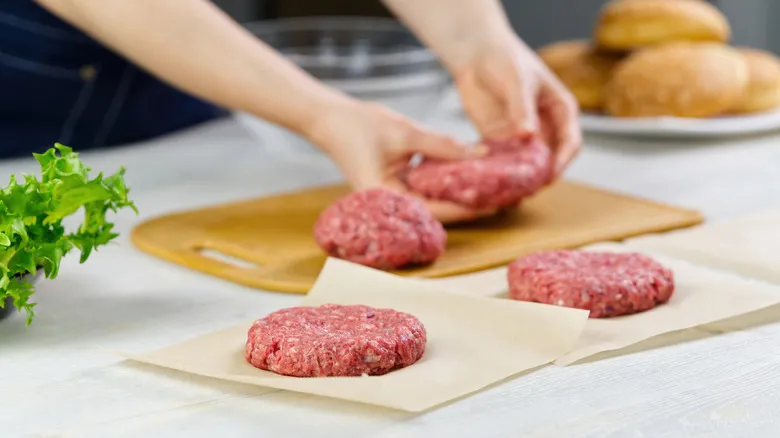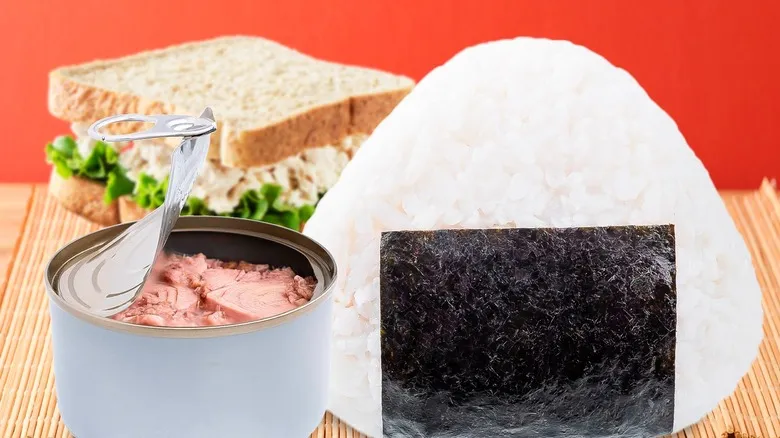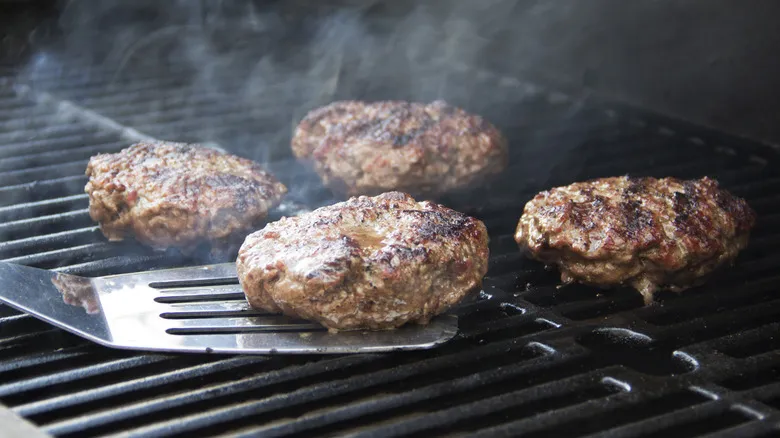How cooking spray can keep your hands clean

Raw ground beef tends to be "sticky" for a couple of reasons. Firstly, blends with higher fat content, which are ideal for creating juicy burgers, are rich in fat and grease. If you've ever tried to clean butter or shortening off your hands, you know how challenging it can be. Secondly, muscle tissue contains an important protein called myosin. As this protein breaks down, it produces a sticky substance. In steak, myosin is primarily contained within the muscle tissue, so it typically doesn't get all over your hands. However, with ground beef, the muscle is broken down, exposing the myosin. As the meat warms while you shape it into patties, this protein becomes even stickier. (This is also why handling the beef less results in a more tender final product.)
Oil serves as a lubricant, making it harder for fat and meat to adhere to any surface it coats; this principle is also at work when you sauté with oil. To minimize stickiness while forming burgers, simply spray or pour a bit of vegetable oil into your palm, rub your hands together, and the meat will stick to itself rather than to you. This should allow you to shape your patties with much less mess. Be sure to season the meat before applying the oil, and have a plate ready for the finished patties. Lastly, remember to wash your hands thoroughly when you're finished.
Which oils work best when handling ground beef

There are numerous types of cooking oils available, including sesame, palm, vegetable, coconut, olive, and canola. So, which one is the best choice? Generally, meats are best cooked in oils that have mild flavors and aromas, such as vegetable or canola oil. Oils like sesame, coconut, and mustard seed have strong flavors and scents, making them popular in East Asian and South Asian cuisines, but they may not be ideal for burgers. Additionally, consider the "smoke points" of oils, which are the temperatures at which they begin to burn and develop undesirable flavors. Oils like walnut and flaxseed have relatively low smoke points, so they are not recommended for burger preparation.
The most user-friendly oils are canola, vegetable, and olive, all of which have high smoke points. In reality, most oils contribute only subtle differences in flavor to the burger meat, making them nearly indistinguishable when tasted side by side (though you may notice the scent on your hands). If you're looking for a more pronounced flavor, consider using chili oil or other flavored oils, and feel free to experiment!
Pro tips: When applying oil, pour or spray it onto your hands over a sink or large container to catch any spills. Also, season the meat before applying oil; handling spice jars with oily hands can be tricky, and you might end up with salt everywhere except on the meat. Lastly, ensure that the oil is fresh and not rancid, as this will impact both the flavor of the burgers and the lingering scent on your hands.
Recommended

The Scientific Reason Onions Make You Cry

How Long Does It Take To Thaw An Ice Cream Cake?

Tired Of Making Goopy Sandwiches With Your Canned Tuna? Try Onigiri Instead

Pour Boiling Water Over Chicken For Superbly Crispy Skin
Next up

